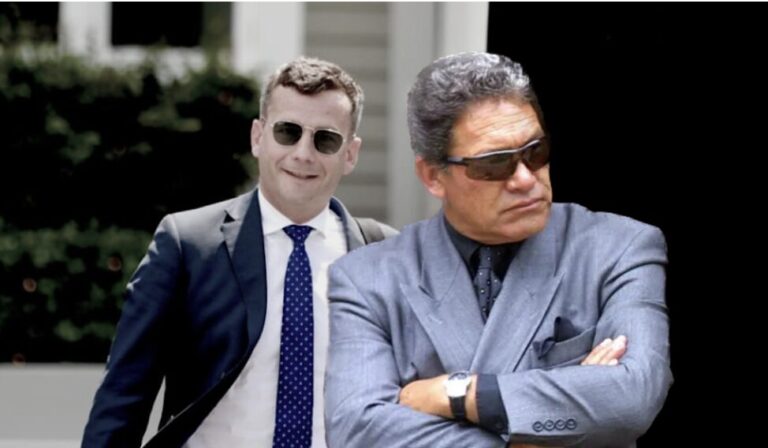Ben Morgan’s Strategy Lesson from Antiquity
The first principle of war is ‘Selection and Maintenance of the Aim,’ or in non-military jargon, the key to success is deciding exactly what you want to achieve, before you commit to a course of action. Then to pursue that objective single-mindedly, testing every decision or change of plan against it. However, history, and our own lives are littered with examples of people embarking on risky adventures without a clear picture of their end state, or what they want to achieve.
A key trait that undermines the first principle, is the human desire to compromise, to avoid simple but difficult options because they may make us look bad, or carry risk. Instead, we rationalise and look for compromise solutions to problems. Telling ourselves we are mitigating risk or to avoid criticism. The experience of Gaius Pontius, a Samnite general provides an opportunity to reflect on this trait. In his case it turned a tactical victory into strategic defeat.
The Caudine Forks are a narrow defile on a road running through the Apennine Mountains. In 321 BC Rome’s enemy, the Samnites tricked a large Roman army into the defile. The Samnites felled trees and rolled boulders into place blocking the Roman’s exit and trapping 50,000 Roman soldiers.
At the time, Rome was a rising power and twenty years before its armies marched south to fight the Samnites. That war started after Campania, a rich state located between Rome and Samnium appealed to Rome for military aid against the Samnites. In 343 BC, the First Samnite War resulted in a Roman victory and an uneasy peace between the two nations.
Peace lasted until Rome established a colony in Campania, in 321 BC. A territorial expansion that created tension between the rival powers and led to a series of tit-for-tat escalations. The two states trapped on a collision course that culminated in the Second Samnite War and a Roman advance into Samnite territory.
The Samnites were tough soldiers from the mountains of Southern Italy, nicknamed Belliger Samnis, or warlike Samnites by the Romans. Samnite soldiers disguised as shepherds deceived the Romans, convincing them that the allied city of Apulia was threatened. The Romans were tricked and raced to relieve Apulia. However, they chose to take the quickest, but riskiest route, through the Apennine Mountains passing through the Caudine Forks.
A risk that they soon regretted when their large army was trapped. Rome did not have enough soldiers to relieve the force and the trapped soldier were faced with the prospect of being starved into submission, or butchered. Its easy to imagine the fear and anxiety in the Roman camp. But discipline prevailed, Roman leaders ordering their soldiers to fortify their positions.
Meanwhile, Samnite leader Gaius Pontius wrestled with his options. The orders he had been given were to defeat the Roman invaders to guarantee the security of Samnium. Now he was in an enviable position, a large Roman army completely at his mercy. However, he was cognisant that his decision would impact on his people for generations
So, after considering the situation he sent a messenger to his father, Herennius Pontius a Samnite statesman, asking for advice. Herennius Pontius was experienced in strategy and statecraft, an acknowledged expert in these fields.
When the messenger returned, he was quickly admitted to Gaius Pontius’s tent, where the general read the letter and was surprised by his father’s advice – ‘Let them go.’ Did his father understand the situation? Why would he suggest giving up a military victory of this scale?
Gaius Pontius quickly drafted a new letter, and again his father responded quickly. But his advice was remained succinct – ‘Kill them all.’ The contradictory answer confused Gaius Pontius, he was a soldier not a murderer and did not want to massacre an already defeated enemy.
Frustrated, Gaius Pontius sent another message demanding his father come to the camp and explain his conflicting advice. Herennius Pontius therefore made the journey to meet his son. When he arrived, Gaius Pontius asked him about his advice. It is easy to imagine the scene, the young general and his father sitting together, probably surrounded by other Samnite leaders discussing the situation.
His father explained that their primary objective was the security Samnium, and that there are two options. The Samnites can be merciful and let the Romans go, a gesture that is likely to create goodwill and could even be the basis for a new relationship with Rome. A relationship that secure Samnium because Rome is an emerging power and its armies are ruthless and strong. Strategically, it may be better secure the safety of Samnium by becoming an ally of Rome.
On the other hand, massacring 50,000 soldiers will destroy Rome’s military superiority for at least a generation. A horrible act, but one that makes good military sense because the defeat will cripple Rome, securing the safety of Samnium for years into the future.
Herennius Pontius, closed his statement by saying there are two clear and sensible options, and it is not his place to make the decision. He is old and has long since passed that responsibility to younger men.
Gaius Pontius considered each of the options, both were difficult. Releasing the Romans meant giving up a great victory, and he knew he would be criticised for letting them escape. But the massacre of defenceless soldiers was morally wrong, and at practical level would incite Roman hatred for generations.
Instead, he chose to compromise on a third option. He released the trapped Roman army but humiliated them by disarming them, then forcing the defeated soldiers to walk under a ‘yoke’ made of spears lashed together in the shape of an ‘H.’ This forced them to hunch over, bowing before the Samnites as they passed out of the valley.
Gaius Pontius’s compromise tried achieve both effects his father had described. Inflicting a stinging defeat on Rome that would dissuade them from future conflict and demonstrating Samnium was reasonable and merciful, a state that Rome could work with. Probably, he reasoned it avoided slaughter while still embarrassing Rome. That mercy combined with Samnite military prowess would be the basis for rebuilding a peaceful relationship with Rome.
Unfortunately, Gaius Pontius’s plan achieved neither, the Romans later destroyed the Samnites. Roman hatred was fuelled by the humiliation of their army and Gaius Pontius’s merciful gesture allowed Rome to quickly able rebuild its military power and seek revenge.
An unwillingness to accept that there is no perfect solution to problem is a critical weakness for strategists. Trying to gerrymander a perfect solution is often impossible, so it be better to concentrate on one option that although imperfect achieves the primary objective.
The previous US president’s cautious policy toward the Ukraine War provides a modern example of this weakness. In simple terms, the US had two options either support Ukraine, or do not. The result of the first option is probably Ukraine’s defeat and a loss of US prestige as its Russian rival secures a victory. However, this option has some benefits, like a rapid return to the European balance of power, less economic impact, no risk of escalation and sacrificing Ukraine buys the US and its allies time to prepare for future Russian threats.
The second option carries a risk of escalation and involves the immediate commitment of scarce US military resources. But it also has benefits, the US gains international recognition from supporters of democracy and the rules-based order, and it can defeat Russian militarism far from home.
History tells us that instead of defining a clear aim and taking one of these simple options the Biden Whitehouse tried to find a middle road. Trickling resources into Ukraine stopping its defeat, but not allowing it to win. A situation that uses up American resources and diplomatic power, but achieves little. The people of Ukraine suffering through a long and bitter conflict while nearly a million young Russians have been killed or wounded.
It is interesting to compare this approach to Margaret Thatcher’s decision to re-take the Falkland Islands after they were invaded by Argentina in 1982. The Falkland Islands are about 10,000km from the UK and close to Argentina. By conventional military wisdom, the UK’s chances of successfully re-taking them was minimal.
However, Thatcher trusted her military advisors and backed them unconditionally. She committed to a course of action that although far from perfect or low risk. was achievable. Her strategic aim was razor sharp – Retake the Falkland Islands. Her commitment to re-taking the islands energised the British military, and the nation. Her willingness to choose a simple strategy, rather than prevaricating and trying find perfection, in compromise achieved a great result. British forces quickly re-captured the islands, and in the process demonstrated that the UK could still project military power globally.
In conclusion, Gaius Pontius’s mistake teaches us to remain focused on the primary objective because when we do, the options for action are often simple. In his case, the primary objective was the security of Samnium. Herennius Pontius’s options, killing the Romans or releasing them in an honourable brokered peace would have met that objective. Instead, like many people throughout history he shied away from simple but hard options and sought a ‘watered down’ compromise, that failed to achieve his primary objective.
Ben Morgan is a bored Gen Xer, a former Officer in NZDF and TDBs Military Blogger – his work is on substack








Thanks for an interesting and thought provoking post Ben.
“Trickling resources into Ukraine stopping its defeat, but not allowing it to win.” That is disingenuous. A flood of munitions and equipment made their way to Ukraine, much more than “a trickle”. Including of course a few million dollars worth from the colonialist regime in New Zealand. Clearly the West intended that Ukraine would win.
But the primary purpose of the war had nothing to do with Ukraine. It was to weaken Russia. And Ukraine was made to pay the price of weakening Russia with the lives of its people, its cities, infrastructure and industrial capacity.
This was a highly immoral war which sacrificed millions of souls to the geopolitical ambitions of the collective West. It has done nothing for the cause of Ukrainian independence. If the colonialist regime was capable of feeling shame it would now be hanging its head before the people of Ukraine.
“Trickling resources into Ukraine stopping its defeat, but not allowing it to win.” That is disingenuous. A flood of munitions and equipment made their way to Ukraine, much more than “a trickle”. Including of course a few million dollars worth from the colonialist regime in New Zealand. Clearly the West intended that Ukraine would win.
But the primary purpose of the war had nothing to do with Ukraine. It was to weaken Russia. And Ukraine was made to pay the price of weakening Russia with the lives of its people, its cities, infrastructure and industrial capacity.
This was a highly immoral war which sacrificed millions of souls to the geo-political ambitions of the collective West. It has done nothing for the cause of Ukrainian independence. If the colonialist regime was capable of feeling shame it would now be hanging its head before the people of Ukraine.
There is no doubt that USAID has been the Empires’ biggest weapon, controlling the media, funding academia and think tanks. If the war were won by shaping public opinion then Ukraine would rule Moscow. Unfortunately for these spinners of false images and lies reality eventually intervenes. There comes a Saigon embassy moment, or a Kabul evacuation. We are sure to see cognitive dissonance expressed as deep hurt and anger as Ukraine collapses.
In the USAID files we get a look into all of the inefficiencies, corruption and faults within a reemergent European balance of power with all of its bauracracy and all of its ineptitude with not dealing with real emergent threats from obvious basis towards lovingly funding terrorists organisations against even favoured allies to their baffling approach to dealing with intelligence reports, Snowden, Assange, whistle blowers.
Beginning from the White house, to the Pentagon, CIA, FBI NSA, etc and on down to one and four man teams the entire corporate military complex continues to shock us with just how badly they’ve managed to wedge everyone inside the U.S./Russian nuclear umbrella.
The war in Ukraine is clearly setting up difficulties in how we manage our own government when setting up the necessary requirements for a peaceful, or violent nuclear draw down. The war in Ukraine is a proxy war like every other conflict involving a nuclear super power.
As it turned out the west was woefully unprepared for a pair on pair conflict and our own idiocracies and infighting has allowed for the emergence of a new balance of power, a new world order where America is the aggressive Allie.
The old and new world orders are a corrupt and failing system grounded in Nuclear weapons and impotence. It shows why Empires are the ideal system. The problems that brought down empires, decadence, war, famine. Eventually the emperor can not deal with all of them at once. These echoes from the past are quickly luling us into the ultimate tipping point – extention.
It is there for infuriating that the new and/or old world order can be referred to as any form of “organised” government. Because organised is something that we certainly are not. We have to earn the right to be called “organised.” This is because the old world order was birthed upon the spilled blood of imperial rullers and their entire families. It is here, I submit, that the choice between the peacfull or violent path was chosen, and why we are unable to form a peaceful and “organised” political system when all of our political masterminds do, resist larger powers. When it comes to an organised and stable political system our political masterminds, for whatever reason just doesn’t have the background or understanding to achieve such “aims.”
They, our political master men, are unsure how to wield power, when they are the ones with power.
Why wasn’t Ben Morgan saying this two years ago? Why this tremendous waste of life and resources? Why keep pushing the prospect of Ukrainian victory if he knew all along that victory was a most unlikely prospect?
Total Dreamland. All the calls for ceasefire are coming from the West. That indicates that Russia are winning. They seemed very focused on completing their victory on their terms.